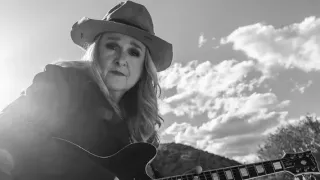November 13, 2015
Of Men and War
Kilian Melloy READ TIME: 4 MIN.
What is it about the French that they seem, at times, more clear-eyed about the American experience than Americans are? From the start, with de Tocqueville's "Democracy in America" (which warned of pitfalls invited by our system of government that we now see as emergent, but have yet to address in any serious way), our Gallic confreres have had a way about them, anticipating and describing the challenges we run up against as a nation.
The latest example is Laurent B�cue-Renard's piercing, devastating film "Of Men and War," a document about the latest American adventures in Iraq and Afghanistan that moves beyond descriptions of male bonding in battle (such as last year's film "Korengal"), and delves fearlessly into the aftermath -- the psychological wreckage our returning troops had to sort through in order to rebuild their lives.
B�cue-Renard spent nearly half a year at The Pathway Home, a center in Yountville, California, for veterans recovering from PTSD, before he shot any footage. It took him that long to earn the trust of his subjects. The resulting level of trust in the filmmaker is invisible on film, which is to the documentary's credit; the veterans here seem perfectly natural before the lens, though you couldn't really say they were at ease. They're far too tormented by their wartime experiences ever to be much at ease. Again and again they speak of shame, guilt, rage, and terror, an unending emotional cacophony that contributes to lost and damaged marriages and separations from children as well as spouses.
Of B�cue-Renard himself, there is no trace; the film's entire 96-minute running time is taken up with the stories of a group of veterans who struggle, in group therapy or one-on-one interactions with each other, or back home with strong, supportive spouses, to put their shattered inner selves back together and get their lives back on track. There's little distance between medium and subjects here; we simply drop into the experience, and only with time do we learn names and get to know the handful of men upon whom the film focuses. B�cue-Renard doesn't create any artificial means, apart from recording and editing the footage, to help us along: There are no voiceovers, no fancy photographic tricks or re-enactments, no subtitles. We're more or less on our own in a sometimes worrying environment.
But that's the point. We're not actually in the room with these guys, but sometimes it feels like we are; and though their reactions to everyday stresses, and the stories they tell (often through tears and embarrassment at their condition) can feel harrowing or even dangerous, these men are not monsters. Neither are they crazy; they are sane, decent people who have been put through an insane, and indecent, experience, and have had to do terrible things in order to come out the other side still alive. They've been changed by their ordeals -- seeing friends die right next to them, being responsible for the deaths of civilians as well as enemy combatants, and skirting their own mortality. You don't just laugh such things off even if, as one vet recounts, you sometimes have to make tasteless jokes just to get through a moment of unfathomable horror. It makes the gentler business of commuting to work, planning out home decorating with the wife, or helping a child with her homework seem alien and a little bewildering -- if it's not a trigger for an outright meltdown.
This is the face of modern soldiering, and of modern warfare. The human tendency to resort to organized force is probably more ancient than the species itself, but our talent for thinking up better ways to kill and destroy are, it turns out, replete with unintended and far-reaching consequences.
Simply put, this is but a glimpse at the human cost of our recent flirtations with empire. In these frames, some may even discern the barest presentment of the price still to be paid, if the house of cards disturbed by America's involvement in those nations continues to collapse into sectarian violence and the extremist groups that have subsequently been energized continue their ascent.
But if the human animal is still given to violence, the human spirit is sublimely capable of rising above brutality. B�cue-Renard stuck with these men for several years, and as time passes their psyches heal, they reintegrate with their families and society at large, and their prospects brighten. In the background, a healing, protective institution lingers -- The Pathway Home, that is. (We hear nothing about the VA.)
Politics in recent years has been rife with instances of lawmakers who wish, in practice, to renege on the implicit bargain that's struck when a nation sends its men to war and must then see to their needs upon their return. Here, in contrast, we see a facility doing the hard work of healing our wounded warriors.






